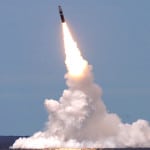
Teams that lost the race to run the Los Alamos National Laboratory for the next 10 years are expecting a formal debriefing from the National Nuclear Security Administration (NNSA) this week, after the agency’s decision to entrust the storied weapons lab to a team including longtime manager the University of California.A pair of sources said the debriefings are on the slate for the week of June 18. After the semiautonomous Energy Department agency explains its choice, teams have 10 days…

 By
By 











